Last Updated on January 16, 2024 by the Dobies Horticultural Team
This year at the RHS Virtual Chelsea Flower Show 2021 and the postponed Chelsea Show in September, one of the running themes is sustainability. Therefore, the judges will be certainly considering green credentials against the product of the year nominations!
This year’s annual Product of the Year Award brings sustainability to the forefront of the contest and reflects on the evolution of environmentally friendly products becoming widely used in the garden. The focus on green credentials leads to this year’s nominations promoting the use and capability of sustainable materials and highlights issues of climate change, pollution and plastics affecting our planet. Therefore, the nominated products will also be judged for their carbon footprint, environmental best practice, durability, biodegradability and recyclability too!
So, in order to celebrate all things sustainable gardening, which we do quite often on our blog, we have put together our best tips and tricks and created a Dobies guide to sustainability in time for RHS Virtual Chelsea Flower Show 2021! We know that many of our gardeners within our wide allotmenteer community keep our ecosystem in mind, but if you want to learn a thing or two about how to be more sustainable in the garden, then stay tuned!
How to Garden Organically
Organic gardening and organic growing mean to team up and work alongside natural systems and cycles in your garden. In this scenario, there is very little use of manufactured chemical substances, and instead, organic gardeners opt for natural resources. One of the greatest benefits of choosing some organic methods in the garden is the avoidance of pollution, such as using manures and fertilisers from animal or plant remains. In other words, composting! Some of the organic gardening techniques you can introduce on the plot include improving your soil, introducing your own compost, choosing wisely on your plants, natural pest control, and companion planting! As much as you give organic goodness to your garden it will give it to you back. Such as plenty of tasty crops, happy wildlife and a healthier environment. So, without further ado, here’s a guide to the basics of organic gardening plus additional tips to sustainability at home!
Care for Your Soil
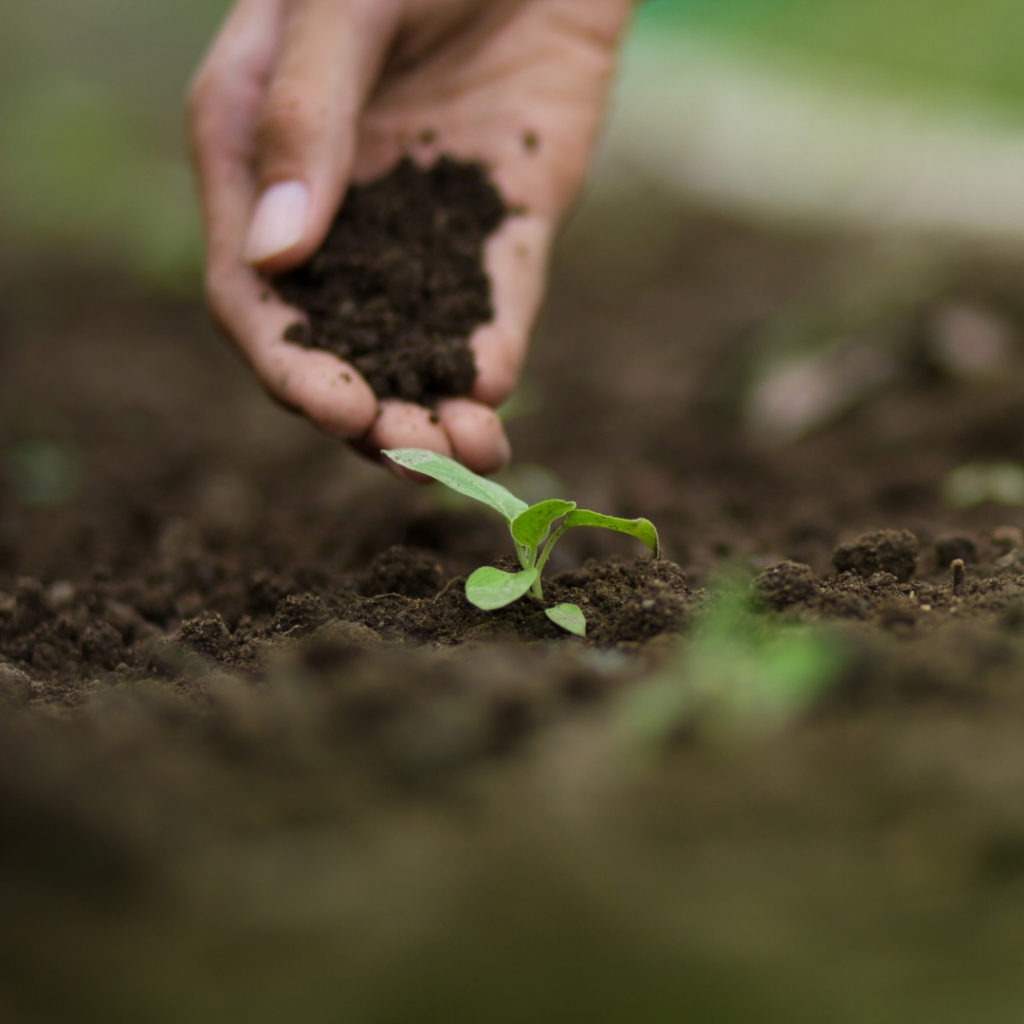
- Good soil means good plants and crops. Homemade garden compost and other organic manures are the best ways to feed your soil. This adds nutrients and aids in a good structure for your plants.
- If you minimise your digging this will also avoid disturbing the complex soil life. For your compost and manure, you can lightly gid this into your soil or spread it along the surface.
- Get to know your soil for what it likes and how to maintain it. Keep your soil covered with beautiful plants and tasty crops, or opt for mulch and green manure to protect your soil and keep pesky weeds away!
- Rotate your veg. If you plan your vegetable year and always have something growing, you will avoid a breakout of pests and diseases.
- Avoid harmful chemicals – if you follow all of the above, you will hopefully not find the need to use chemical weed and pest killers, which damage the growing area too.
Not sure about what soil you have? Read our Soil Type blog to find out!
Keep Up The Weeding
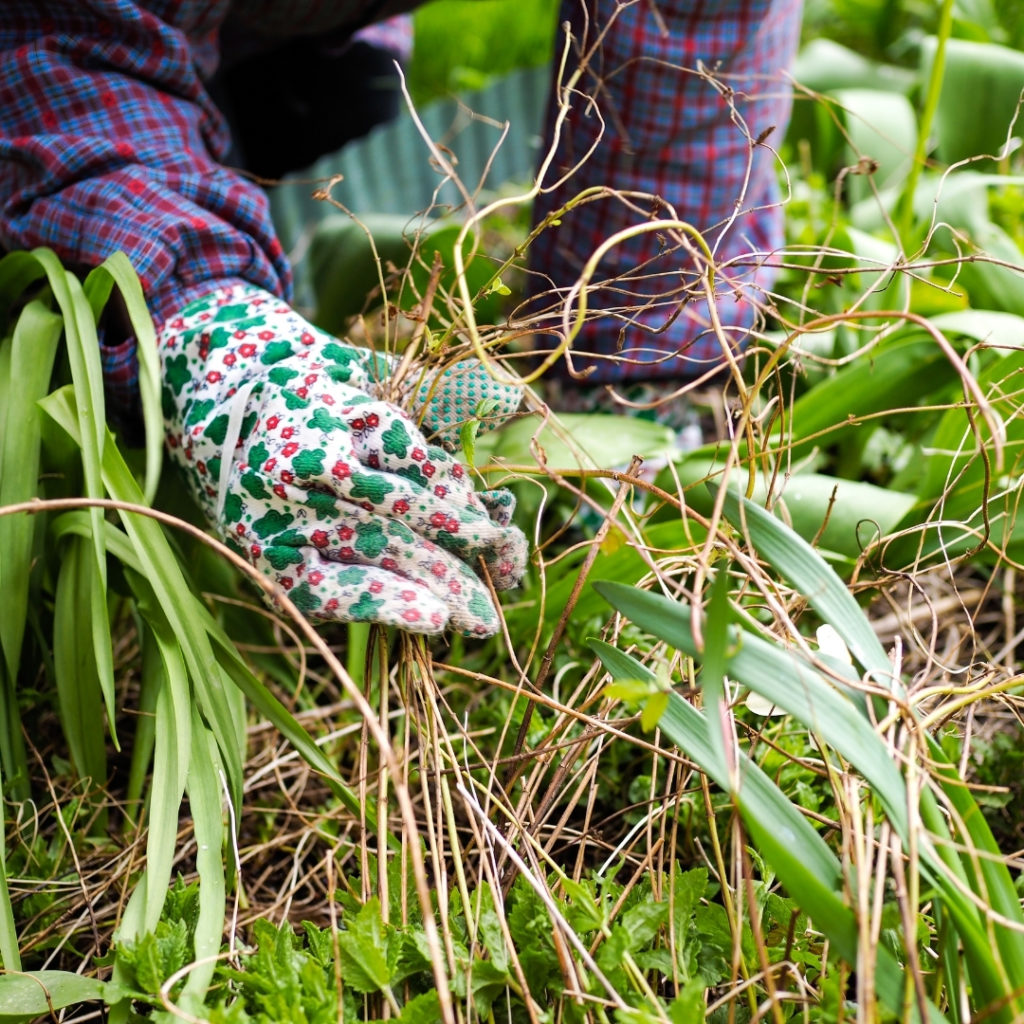
- Similar to the advice above on how to care for your soil, you can control your weeds naturally by spreading mulch and even compost and composted straw across the surface of your soil.
- If weedlings begin to show, act quickly and pull them up with a hoe before they set seed and spread.
- Always discard your weeds, they might reproduce on your compost heap!
- Try weeding a little but often if they do occur, this way you will have more control if they begin to spread.
- Hopefully, if you care for your soil properly weeding won’t happen, but even if they do you’re not having to use harsh chemical killers and every little helps with the environment!
Compost Everything You Can
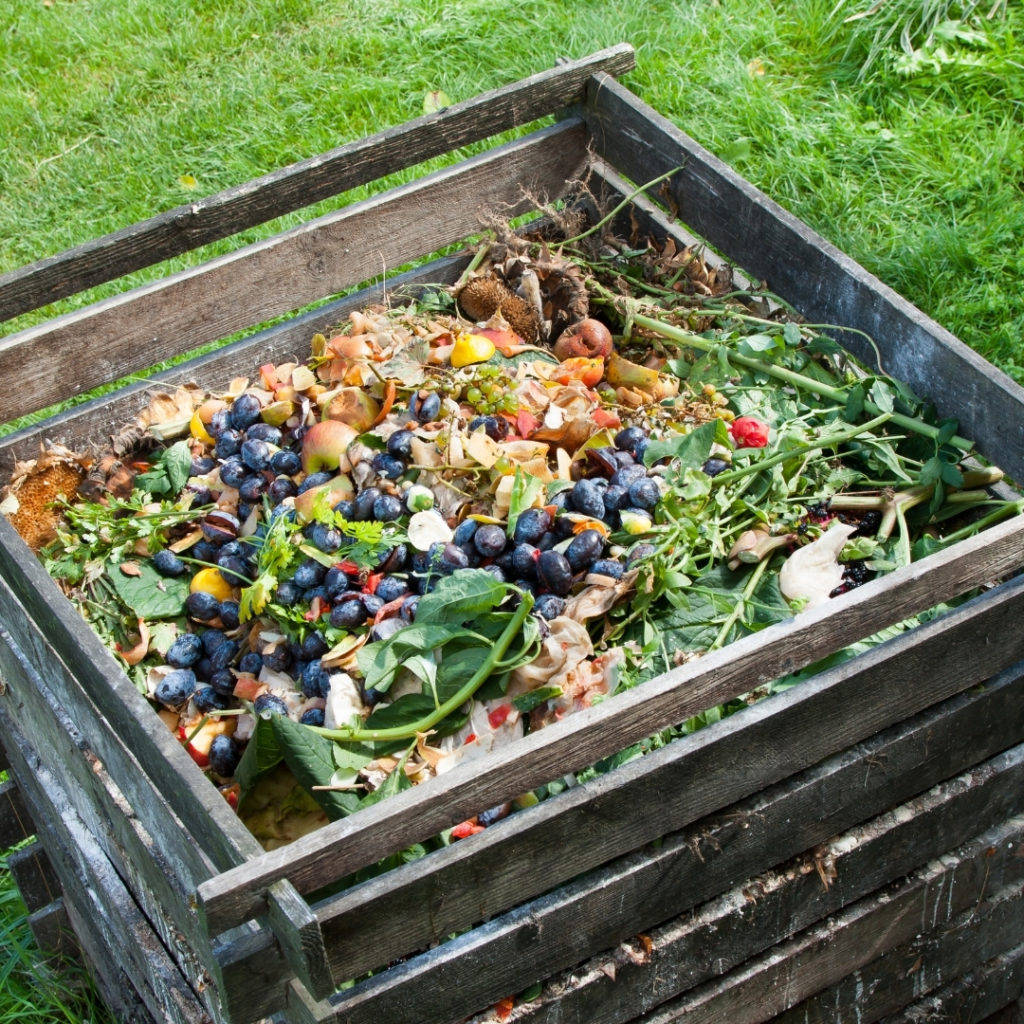
- Almost anything biodegradable can be chucked in the compost pile. From cut off flower heads, prunings, peelings and food waste can be transformed into nutritious and resourceful compost.
- Once you begin this you will soon realise that feeling the soil is the key to success with an organic garden. Home-made compost is free and we have many compost bins for you to try!
- Alternatively, you could build one using old containers or pallets, and fill them with a mix of brown and green material to hit the ground running.
- Make sure to remember to turn your heap pretty regularly, but try not to disturb any wildlife friends in there!
- It can be hard to get the perfect compost heap, some are too wet, to dry or don’t rot down quick enough. The best advice is to use a mix of materials, from leafy grass clippings to kitchen waste. This will keep a good balance in moisture and encourage quicker decomposition.
- Lastly, the bigger the heap the better! The bigger it grows the quicker it goes, so make sure you have a big compost bin! But, starting small is a small step to helping the environment, your soil and crops too.
Create A Compost Café
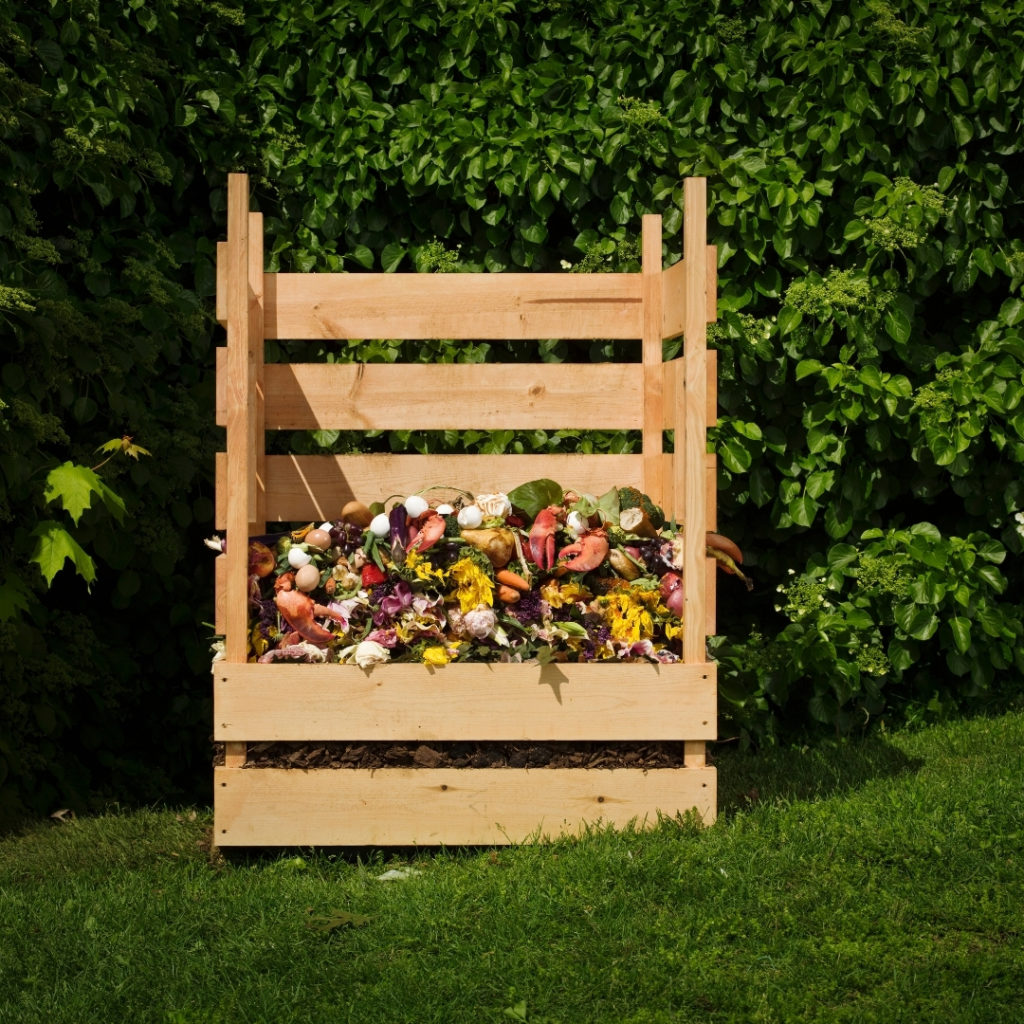
Creating a compost heap is a great way to attract wildlife to your garden. The humble compost heap not only reduces landfills and enriches the soil, but it also creates a whole community of insects who will help speed up the decaying process for you. Because compost heaps create warmth, they can also be resting places for hedgehogs and other small creatures.
So, you’ve picked a spot in your garden, you’ve got your compost bin, so all that’s left to do is start picking out which waste to compost. Pretty much any organic material can be composted, including fruit and veg peelings, tea bags, weeds, shredded paper and even coffee grounds.
Choose the Right Seeds & Plants for You
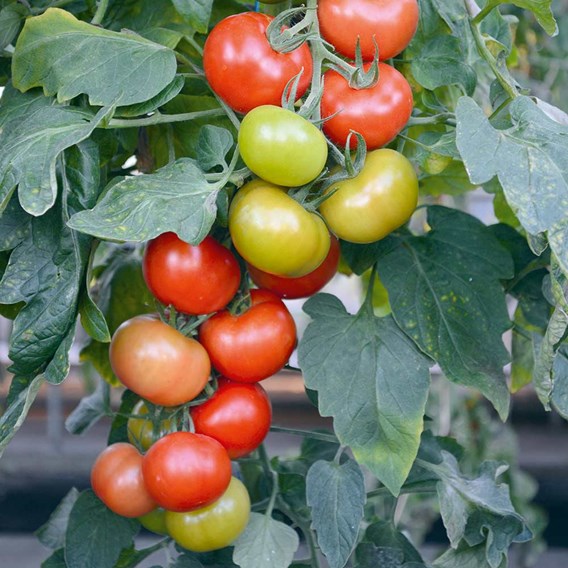
Strong and sturdy plants are likely to survive the dreaded to diseases or pests, so opt to grow a plant that suits your site and soil. You could opt for -naturally disease-resistant varieties whenever you can, such as blight-resistant tomatoes!
Organic Veg Seeds
At Dobies we have a wide range of organic seeds as organic growing is more popular than ever. You’ll find everything from pumpkins to carrots and even some edible flowers. You also know exactly what it is in your veg and the journey of where it came from, which gives you much more information than shop-bought veg. So, if you plan to take the first step towards an organic veg patch or allotment, this range is a great place to start for a future of bumper crops.
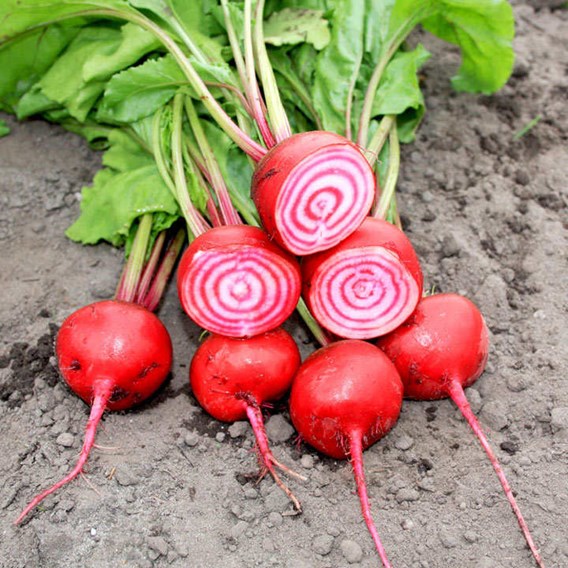
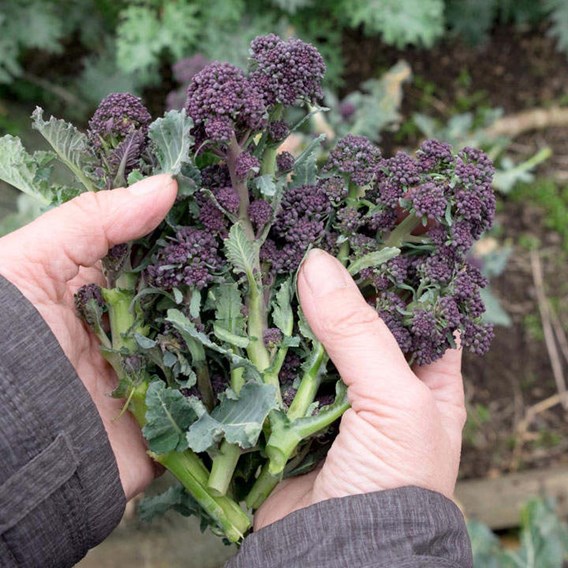
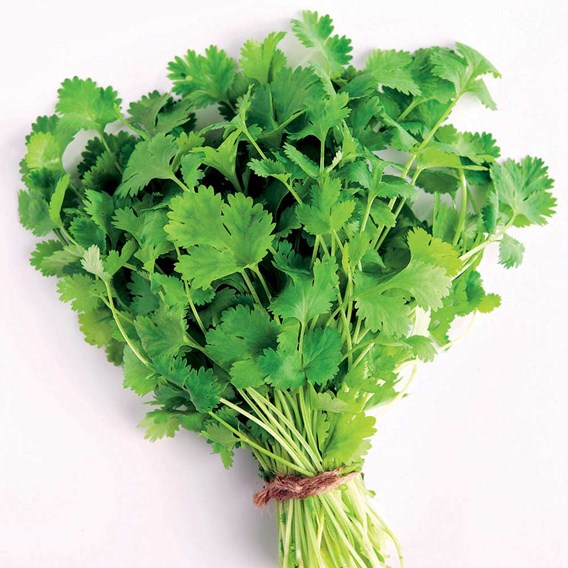
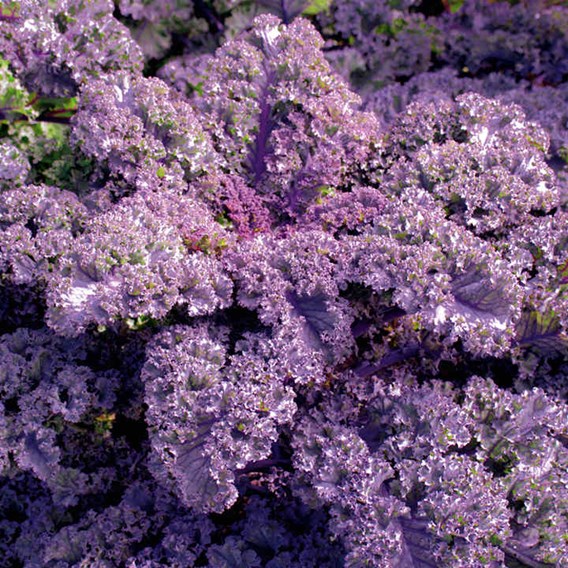
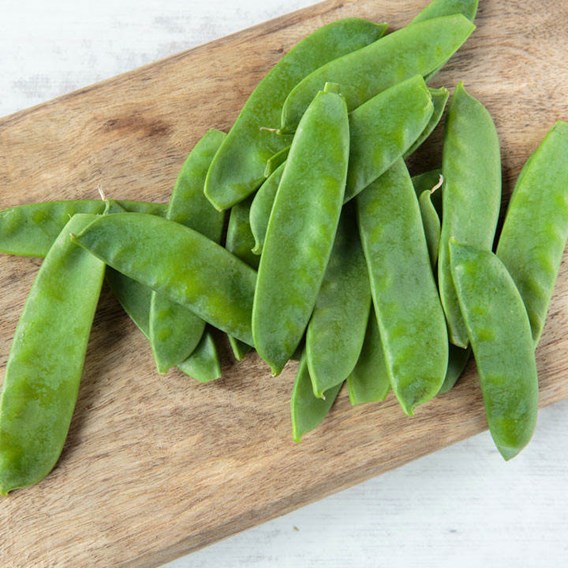
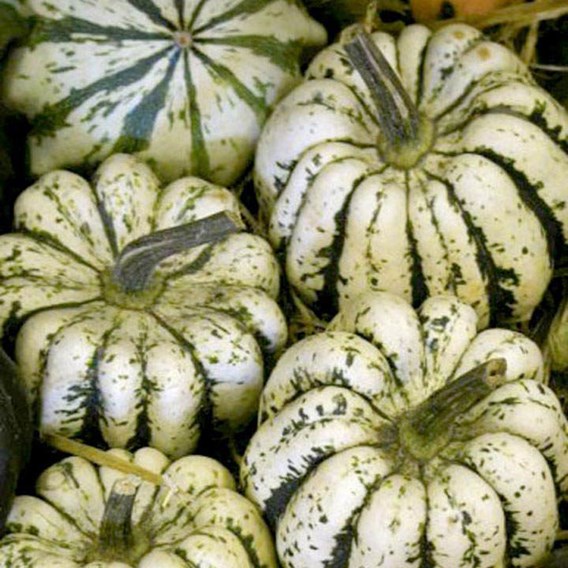
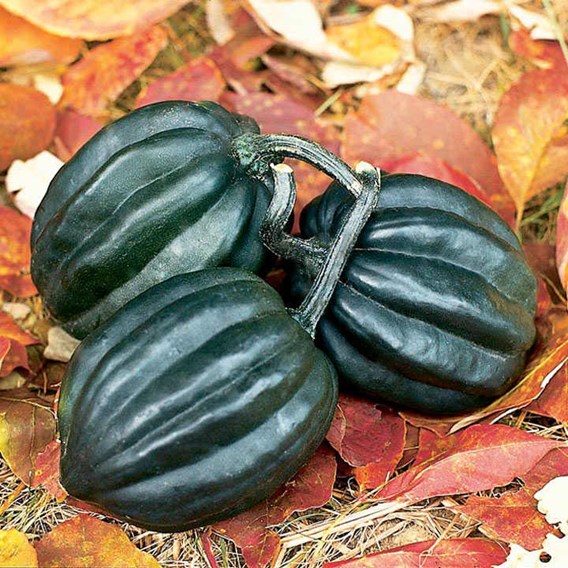
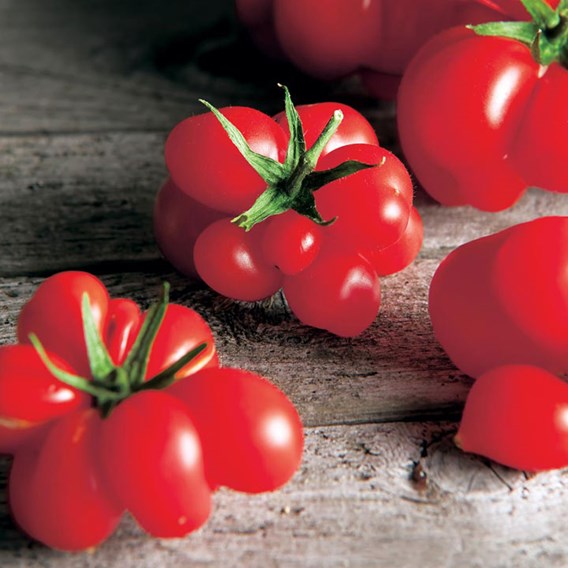
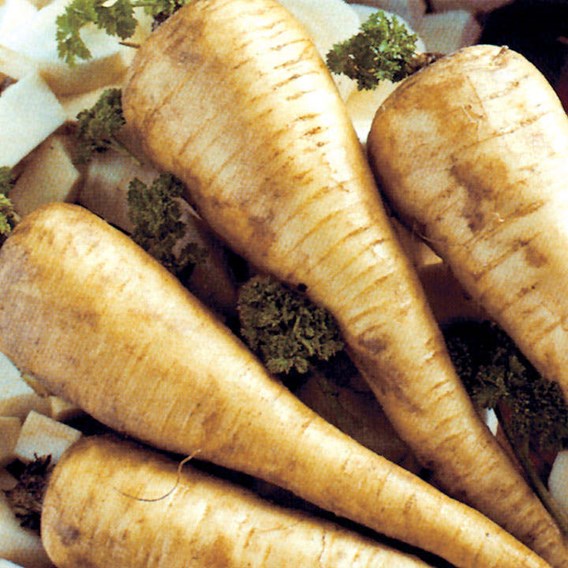
Plants for Wildlife
Garden plants are a home for wildlife and our beloved pollinators, and there are a variety of plants we can grow to help provide for them. The pollination process is one that is biological but also vital, helping plants to produce seeds for the next generation. The air, water and soil in our environment see great benefits from this too. The more plants you grow, especially the more varieties, the more wildlife and pollinators will visit and make it their home. Provide a helping hand to do, and shop our plants for bees and plants for butterflies.
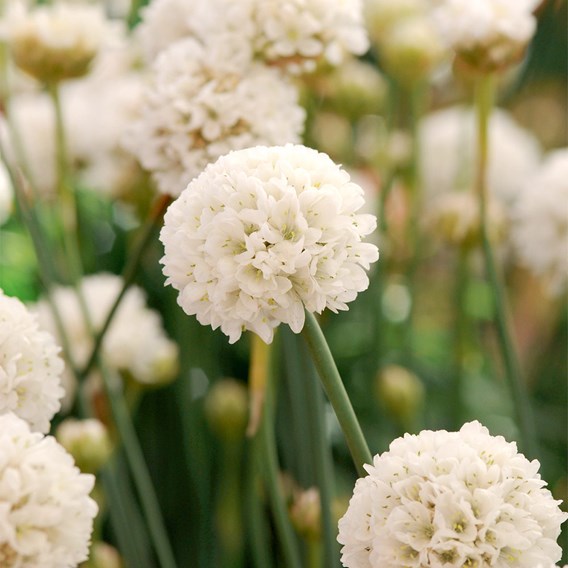
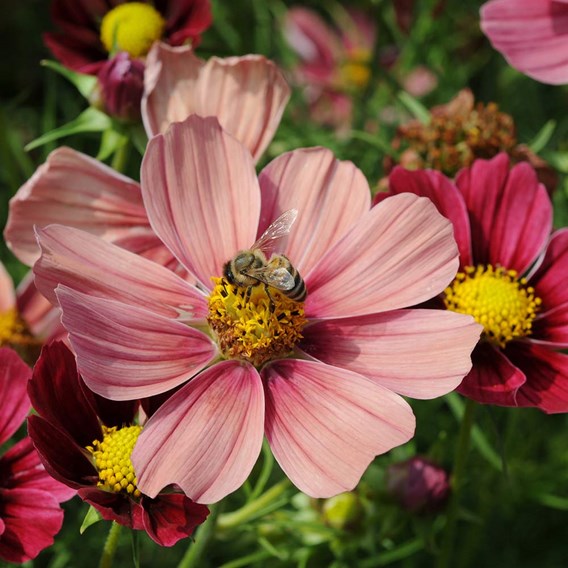
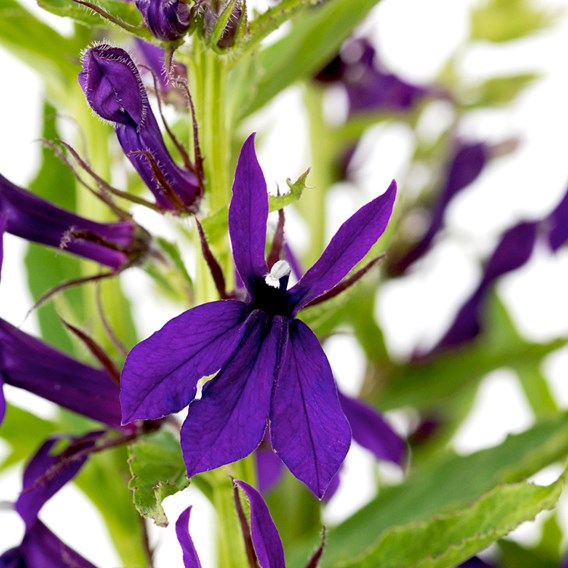
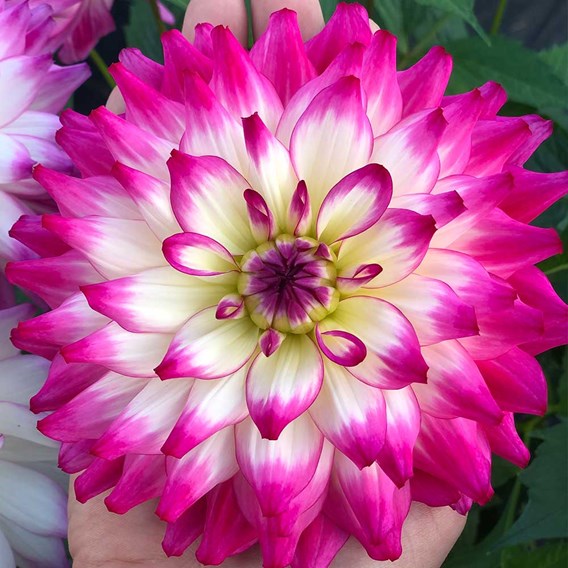
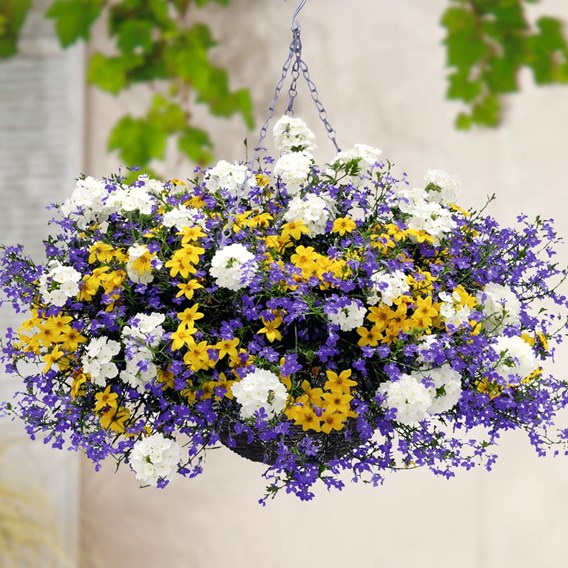
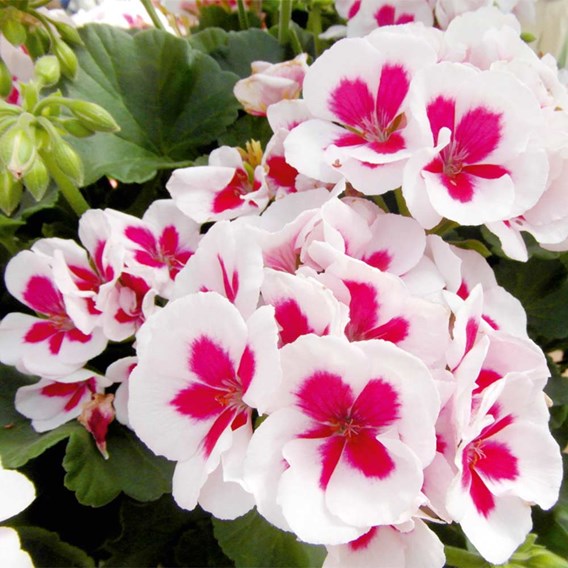
Members of the daisy family are very popular with their single, easily accessible flowers. Echinacea, Rudbeckia or cornflowers are fashionable choices. Other successful options include Verbena bonariensis and lavender both offering pollinators a purple paradise! The Butterfly Bush (Buddleja) needs no explanation – a good choice for those wanting to give their winged friends something a little larger. Achillea offers a great landing platform for bees, hoverflies and butterflies and also provides food for birds in the form of their dried seed heads later in the year.
Be sure to consider all the evening time pollinators too, they need a place in our garden just at a different time of day! Moths also transfer pollen from one plant to another and they love scented white flowers, Nicotiana is a particular favourite. You’ll also benefit too, as the light fades and the white blooms really glow and emit their powerful perfume to be enjoyed by gardeners and moths alike.
Give Wildlife a Home & Offer Them a Bite to Eat!
Here are just a few ways you can help the wildlife in your garden and home!
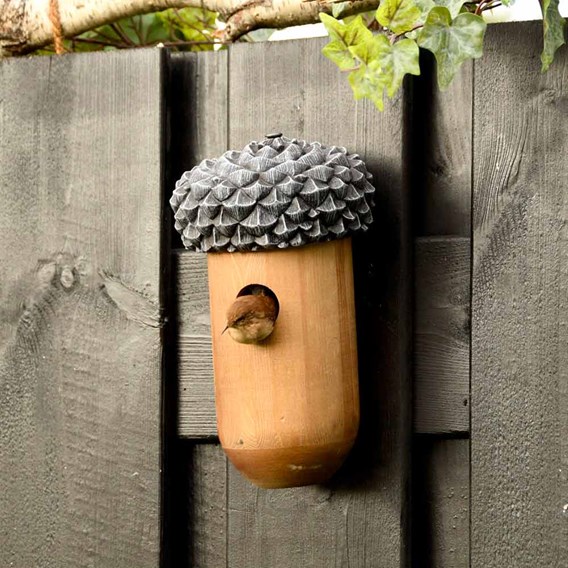
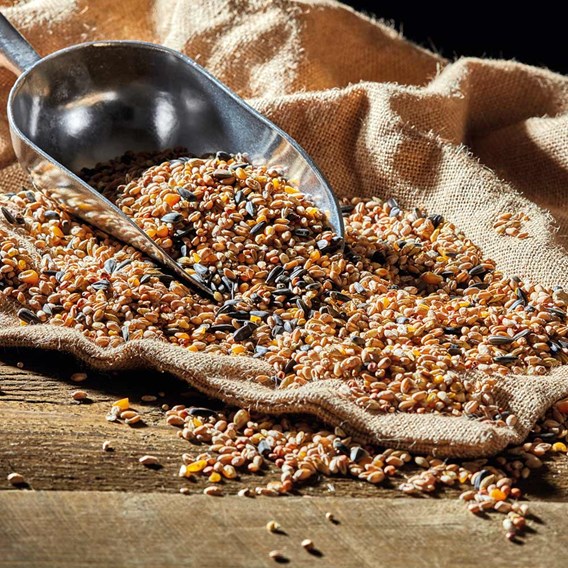
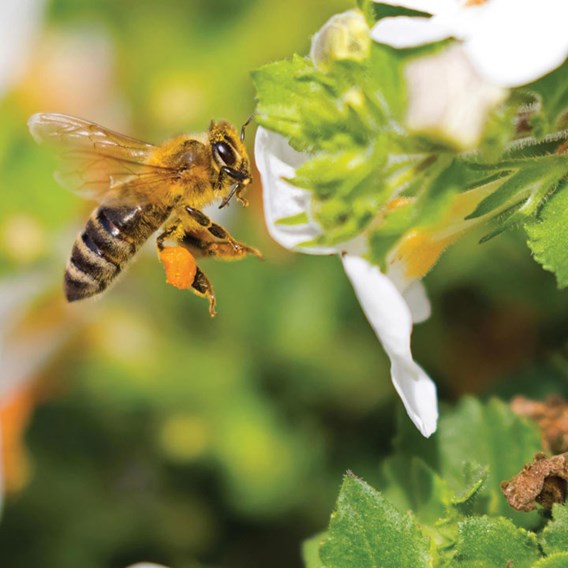
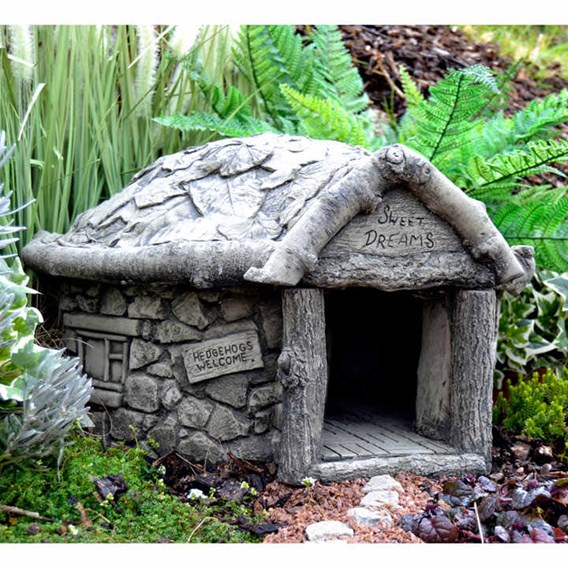
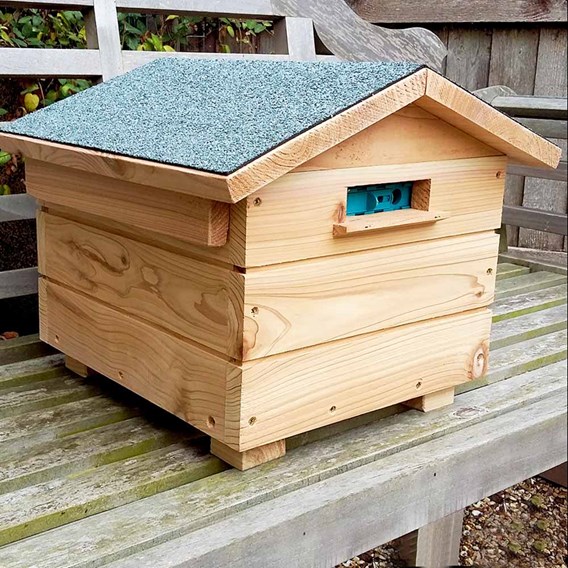
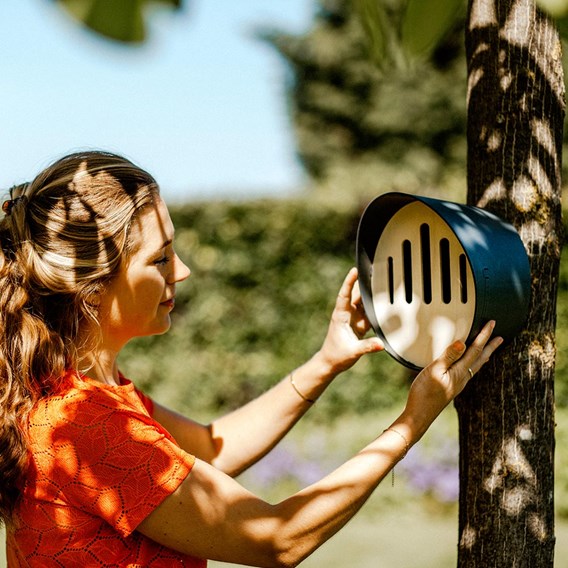
If You Prefer to Make Your Own, Why Not Build a Wildlife Log Shelter
Putting together a pile of logs in your garden will not only attract wildlife and give them a place to stay, but they are easy to build and can be tucked away in ‘unseen’ patches of the garden or plot. In turn, your community of wildlife will attract more birds, hedgehogs and frogs to your garden too!
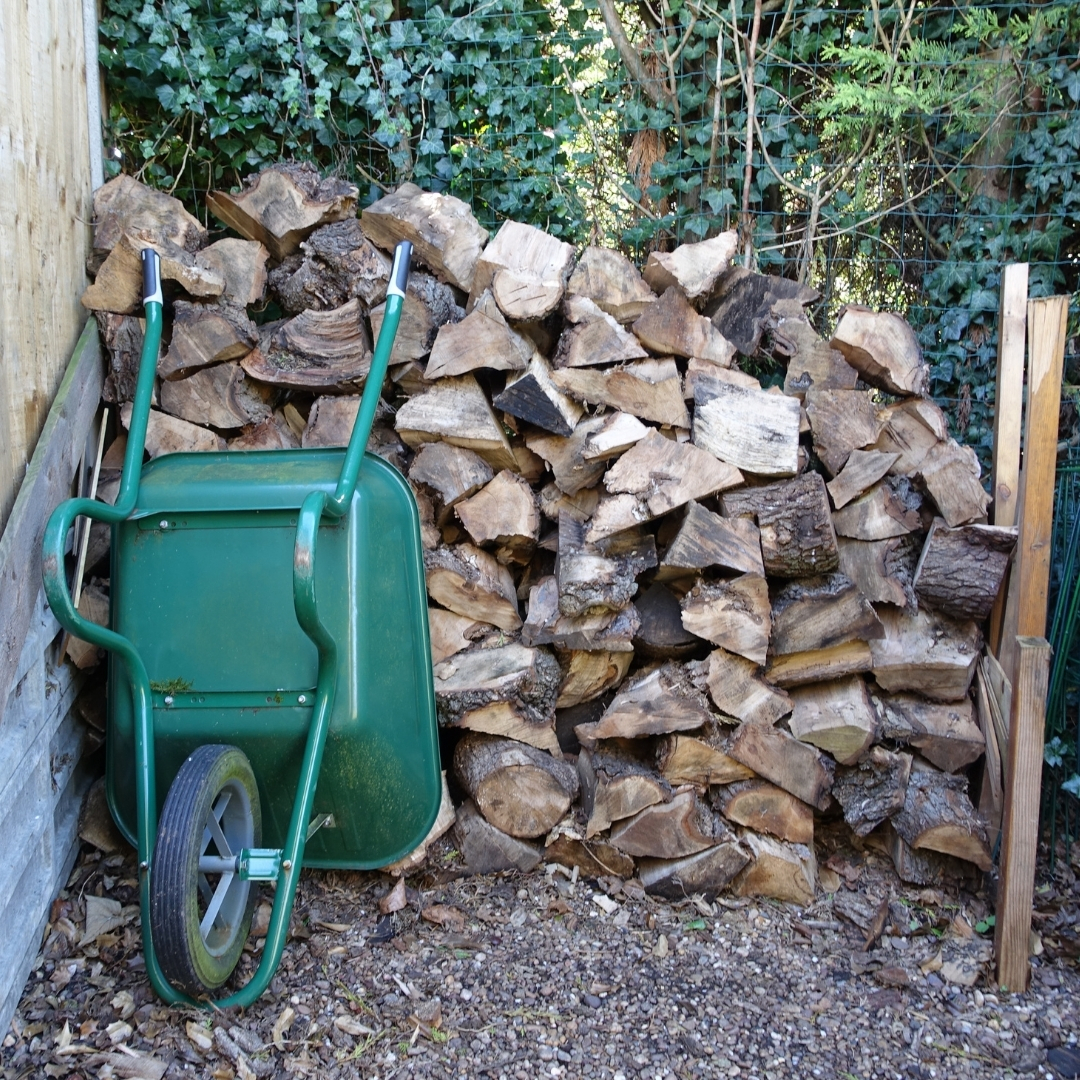
Step one: Collect your logs. If you don’t already have some, try and haggle some from a local tree surgeon or firewood dealer. Native wood does the best job, but any wood is better than no wood!
Step Two: Some call it a ‘minibest village’ but you can build up your logs in a variety of ways. Why not go for a scattered look under a hedge or around a flower border. Or a neat a tidy pile like the image depicts. A stack could be tidy and tall or a bit higgledy piggledy.
Step Three: There isn’t really a step three because building a log pile is as easy as that! What you can do is keep any eye for what lives in there, like woodlice, beetles, centipedes and more!
Build Your Own Bee Hotel
Let’s start with our insect friends. It’s not often that we stop and think about our garden as their home, so it’s a great idea to channel your energy into making things easier for them this National Gardening Week 2021. It’s important to remember that bugs are natural pest controllers in our gardens, so why not make a home for solitary bees from tubes and tunnels in boxes?
Your bee house can be a simple as popping straws into a tin can – but we have an easy guide for you and a great way to get the kids involved. Once you’ve made your bee home, hang it at chest height in a south-facing position and they should come and enjoy it during spring.
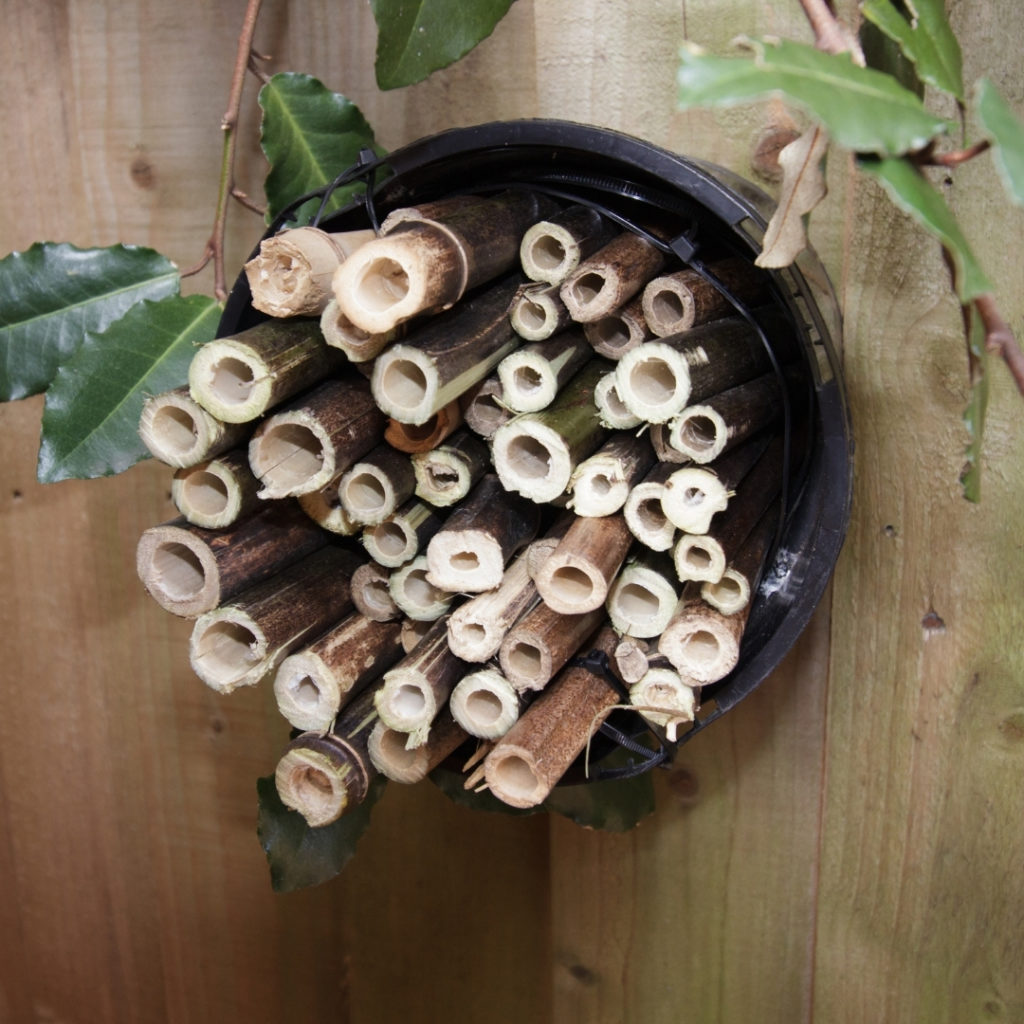
- Step 1: Start by using a clean tin can or another cylinder, opened at both ends, and thread through a length of thick garden string so that you can hang up your bee hotel.
- Step 2: Next up you need to fill your frame. You can either use hollow plant stems or bamboo canes, but if you do not have either of those you can use paper or card.
- Step 3: Either use a piece of thin card or a few sheets of paper and wrap around a pencil and secure with a bit of tape. Make sure your paper rolls are smaller than the length of your can to give protection from the rain.
- Step 4: Add some twigs sticks or straw to offer a home for other insects too!
- Step 5: If you want to get creative you can decorate the tin can or cylinder with some bright colours to attract bees to their new home.
- Step 6: Finally, choose a location for your hotel, an open sunny spot is best, and secure so it doesn’t move around in the wind. A really great way to teach children about the importance of bees!
Help Out the Birds
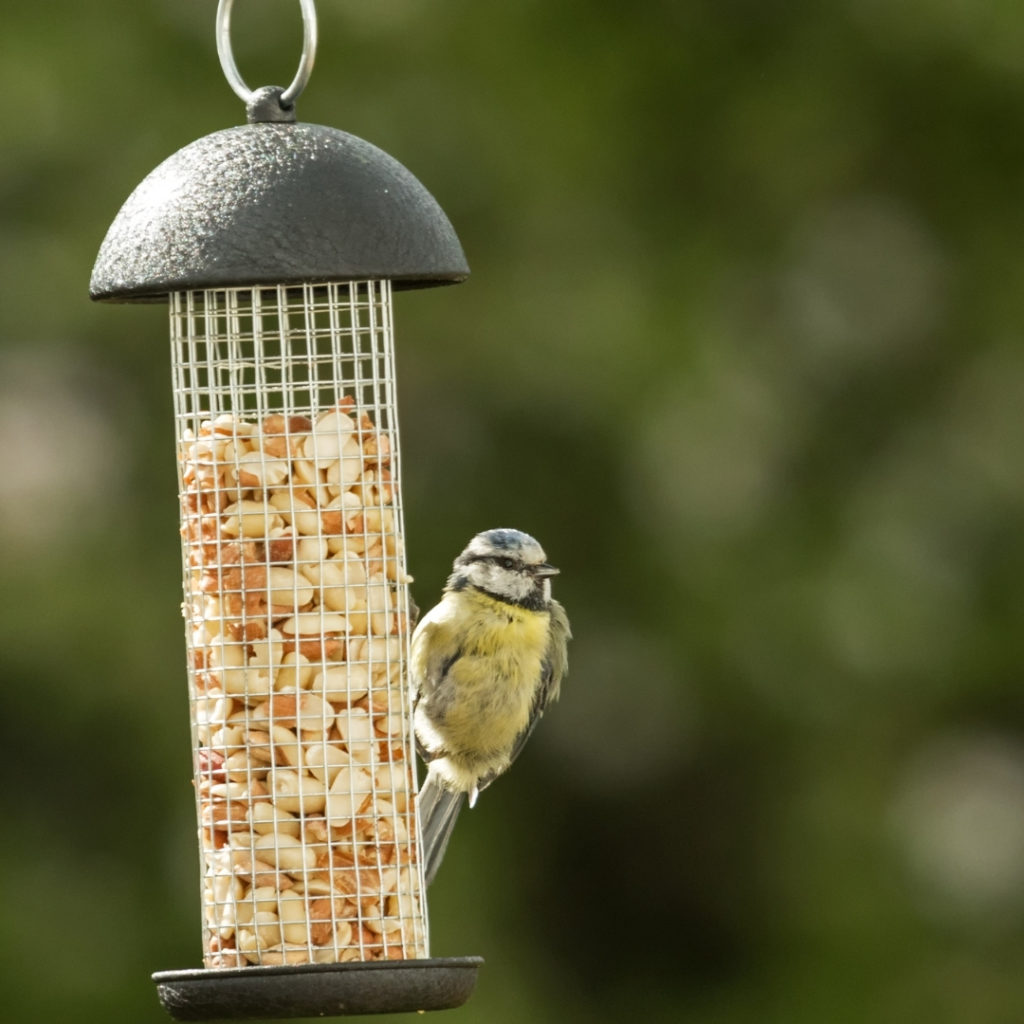
And then there are the birds. Providing bird food and a birdbath will help to attract all kinds of bird species to your outdoor space, and you can hang a variety of bird feeders to appeal to different birds.
Hanging feeders will welcome sparrows, tits and finches to your garden, and bird tables tend to appeal to robins, doves and pigeons (to name a few).
If you opt for a bird table, be sure to place it about a meter clear of cover or high vegetation to ensure that your birds aren’t vulnerable to cats while they’re feeding.
Birdbaths are important sources of fresh drinking water for birds, so always make sure yours is topped up.
Biological Pest Control
If you prefer a natural, organic method of saying goodbye to garden pests, and you don’t have the right natural predators in your garden, then our biological pest controls are the best choice.
Biological pest control is the use of the pests’ natural enemies to control pests in your garden. You can do this by introducing the pests’ natural predators, e.g. ladybird or by the use of nematodes. We have biological pest control solutions for vine weevil, chafer grub, mealybug, scariad fly (fungus gnats), caterpillars, codling moth, ants and more.
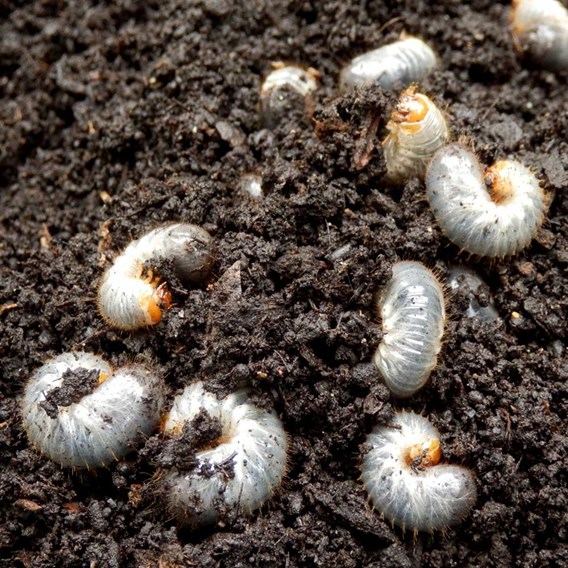
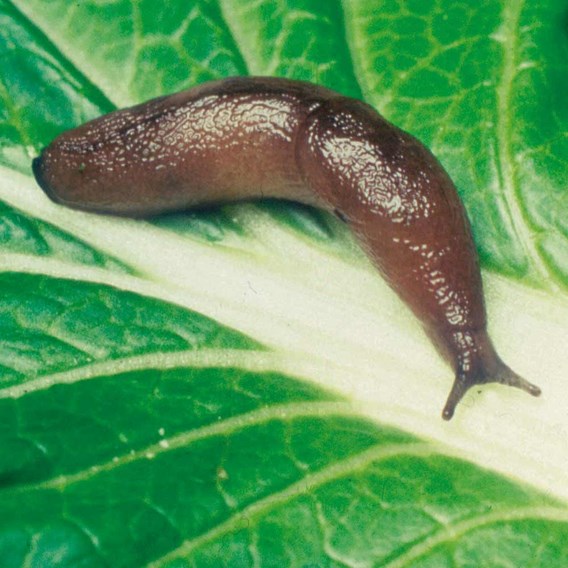
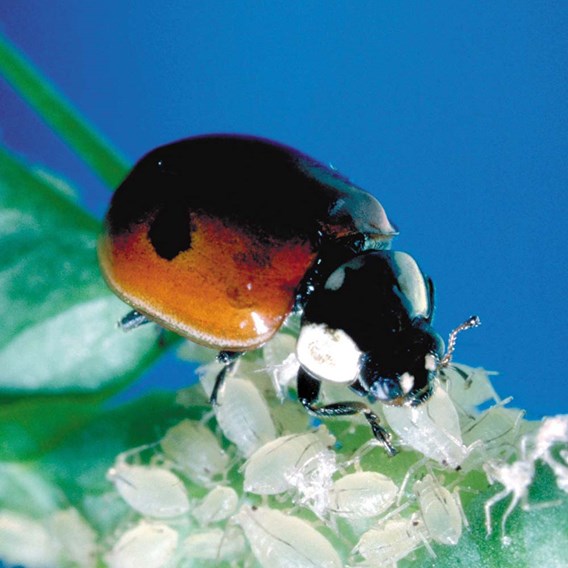
Companion Planting
This is nothing new, and quite an old garden tradition. Companion planting can help protect your crops from pests and attract the right kind of insects to help pollinate them. Pairing particular plants can also be a great way to maximise space in your garden. By combining plants mindfully, plants can aid each other in growing and thriving, to offer nutrients in the soil, protection from wind or sun and also, by attracting beneficial pests or acting as a defense against harmful ones.
With our selection, you can benefit from the synergies between carefully selected companion varieties which work together to lure away pests or aid pollination.
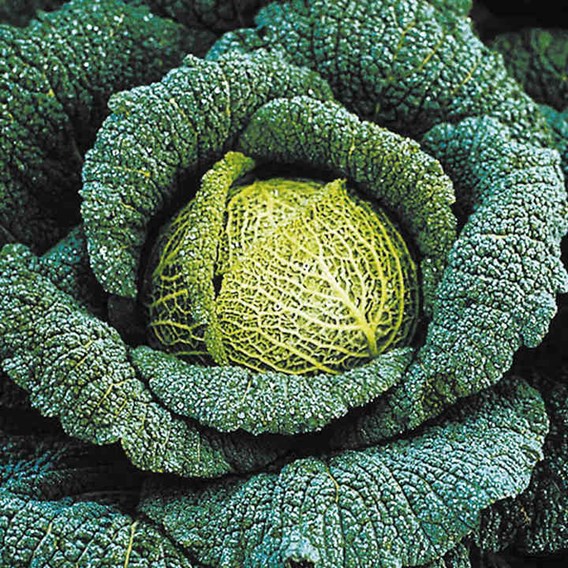
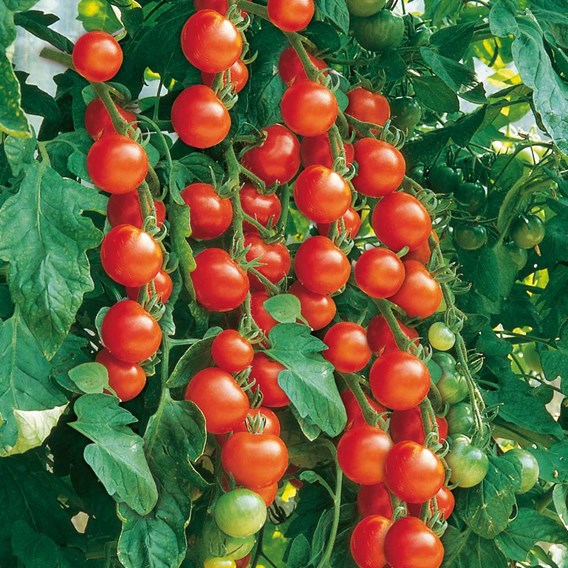
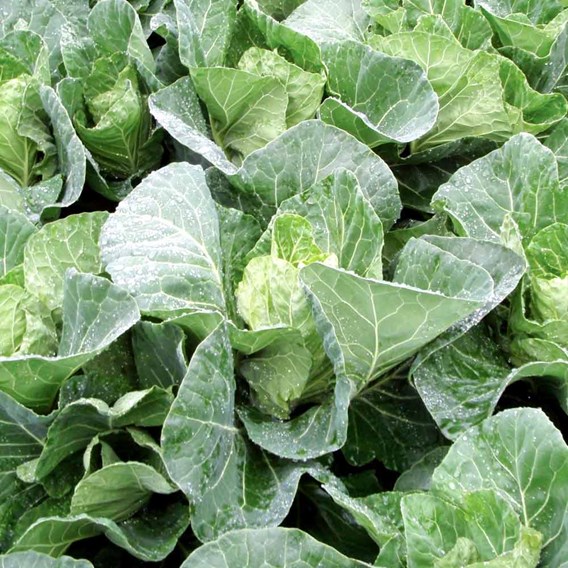
Top Tips:
- Plant marigolds close to tomato plants to repel pests.
- Plant mint next to crops to attract ladybirds, they keep greenfly away!
- Borage is popular with bees, so great near fruit plants.
- Poached egg plants attract ladybirds which keep greenflies away.
- Red knight repels pests from all crops!
Simple Tips On Sustainability
Here are just a few simple pointers on how to make some sustainable changes in your home and garden!
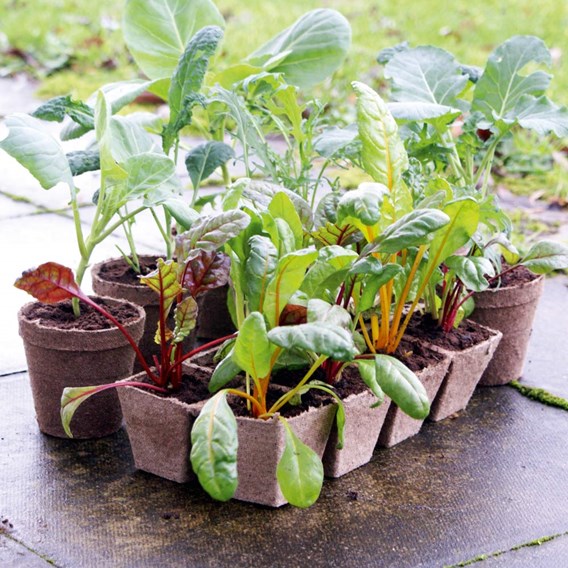
- Save your seeds from flowers and veg – When your crops have matured, collect the seeds before they dry out. Store in a cool dry place, and sow them in the next season!
- Composting – Remember most kitchen and garden waste can go in here.
- Re-use plastic pots and containers – It says it the name, re-use again and again. Or, opt for recycled eco-friendly pots and containers, we have plenty!
- Conserve water – Collecting rainwater in a water butt means less use of a hosepipe. Save money and water!
- Natural Pest Control – Less use of chemical pest killers with damaging toxins to your garden and the environment around.
- Mulching – Keeps your soil moist, full of nutrients and will keep pests away!
- Unmowed grass – It doesn’t have to be your entire garden, but if you keep one section or corner unmowed you will be offering a range of wildlife and a happy home.
- Air quality – Plant trees and hedges to improve surrounding air quality and provide another safe place for wildlife.
Some of Dobies Sustainable Range!
Dobies are proud to offer a range of sustainable products, and here a just a few you can try on the plot!
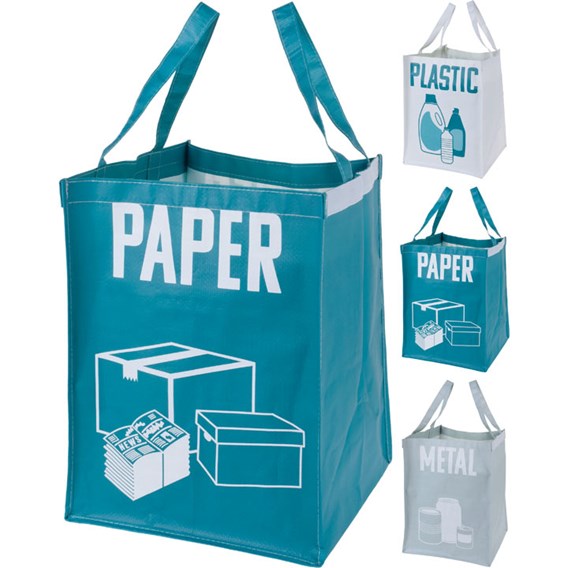
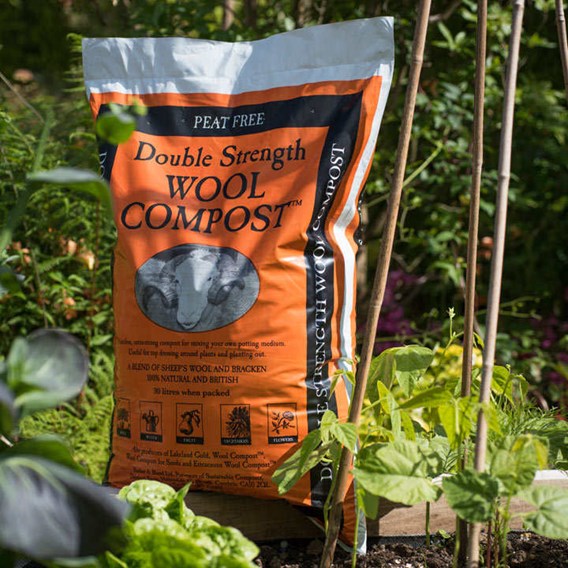
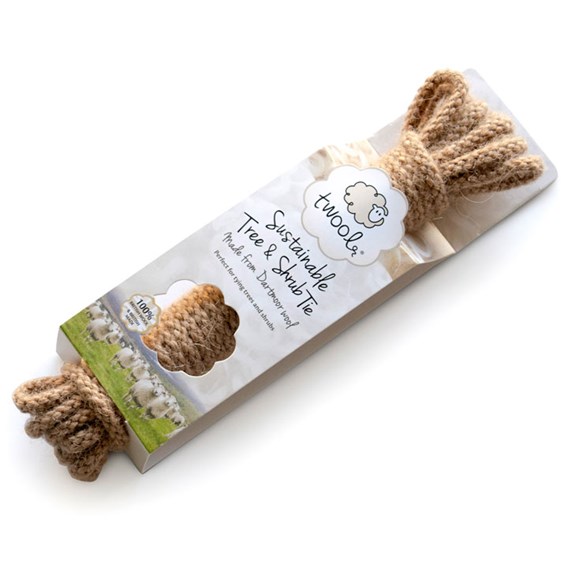
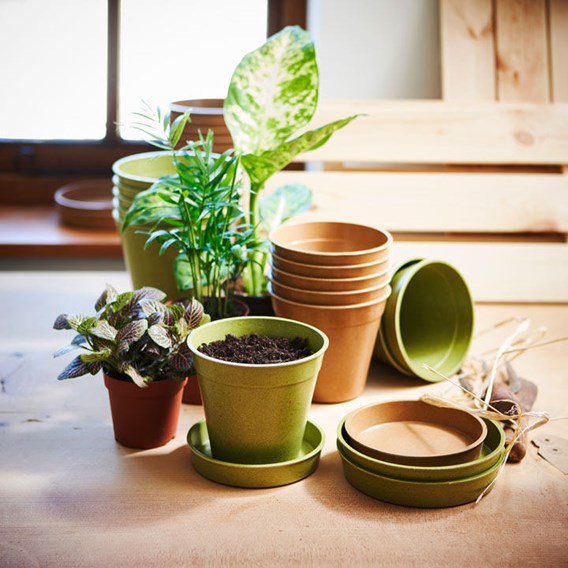
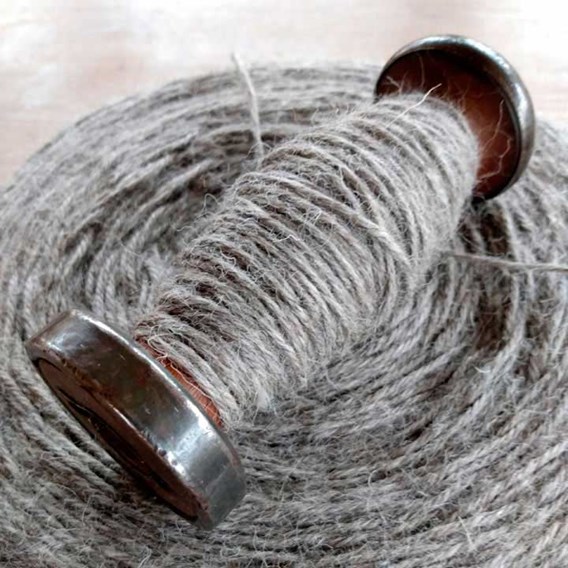
We all know that making sustainable choices are something to do all year round, but making just a few changes in your garden from today can make our planet a better place. With RHS Virtual Chelsea Flower Show kicking off soon, stay tuned on our blog for updates on the show!
Keep us up to date with you gardening antics on the plot through our social media pages, plus be the first to see our latest news and offers!
Check out our latest blog posts below!

